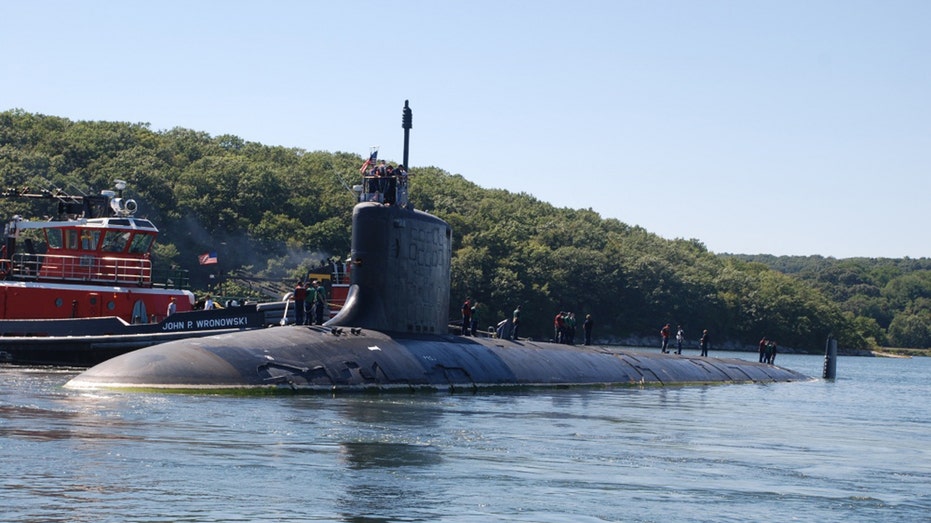China’s military has adopted a policy of keeping at least one nuclear-capable submarine at sea at all times, the U.S. military has determined.
The Pentagon announced the discovery in a little-known report in late November of last year. China maintains a fleet of six nuclear-capable submarines, carrying missiles that could hit the continental United States from the South China Sea.
Analysts say China’s new policy will place further strain on U.S. and allied forces in the region as they attempt to track China’s vessels.
“We’re going to want to have our [nuclear-powered attack submarines] trying to tail them… so the extra demands on our assets are clear,” Christopher Twomey of the Naval Postgraduate School in California told Reuters. “But the point here is that the information – the near continuous patrols – has changed so rapidly that we don’t know what else has changed.”
PENTAGON RELEASES U-2 PHOTO OF CHINESE SPY BALLOON IN FLIGHT BEFORE IT WAS SHOT DOWN
The new patrols indicate that China has adopted policies echoing Western countries’ tradition nuclear triad. The triad of land-, air- and sea-launched nuclear missiles serves as a deterrent by assuring that any nuclear attack would face retaliation.
Analysts say the updated policy would indicate that China has likely made many other structural changes to its navy that the U.S. and its allies are not aware of.
AUSTRALIA COMMITTED TO BUILDING SUB FLEET POWERED BY US NUCLEAR TECH DESPITE CRITICISM FROM FRANCE
The Pentagon’s report on China’s new submarine activity comes just as the U.S., U.K. and Australia have entered an agreement for the production and sale of nuclear-powered attack submarines. Australia will purchase the vessels to modernize its fleet.
Such attack submarines are prime candidates for tracking missile submarines like the ones China has deployed and increasing Australia’s capabilities will take some pressure off of U.S. and U.K. forces in the region.
“We all recognize the imperative of ensuring peace and stability in the Indo-Pacific over the long term,” President Biden said in September 2021 when the deal with Australia and the U.K. was announced. “We need to be able to address both the current strategic environment in the region and how it may evolve.”
Reuters contributed to this report.










